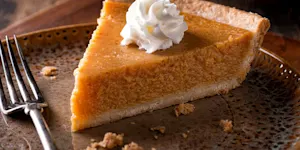What Makes This Word Tick
"Masticate" is a delightful word that means to chew. It's a mechanical-sounding term for a rather organic process, providing a touch of sophistication to a daily activity. The word brings to mind the rhythmic motion of jaws working over a fresh piece of bread or a juicy apple, a universal experience with a somewhat fancy name.
If Masticate Were a Person…
Masticate would be the diligent craftsman of chewing, taking their time at meals and savoring every bite. They'd be the kind of person who reminds you of the importance of mindfulness in dining, perhaps wearing a tweed jacket at the dinner table while discussing the nuances of culinary textures.
How This Word Has Changed Over Time
While "masticate" hasn't strayed far from its roots, the language surrounding it has evolved. With faster-paced lives, the slow, deliberate act of mastication has perhaps seen a decline, often replaced by hurried bites and quick meals. Yet, "masticate" remains a reminder of the virtues of taking one's time with one's food.
Old Sayings and Proverbs That Use Masticate
Though not abundant in proverbs, "masticate" echoes the wisdom of phrases like "chew your food thoroughly," promoting patience and thoroughness both in meals and metaphorically in life.
Surprising Facts About Masticate
Did you know that proper mastication can aid digestion and even contribute to weight management? Chewing thoroughly gives your body time to register fullness, potentially reducing overeating. It’s like a fitness tip hidden in plain sight at every meal!
Out and About With This Word
You'll find "masticate" adorning dental advice columns and gourmet cooking classes where the emphasis is on savoring each bite. It's a favorite word among nutritionists who encourage us to slow down our eating habits.
Pop Culture Moments Where Masticate Was Used
While it hasn't headlined in pop culture, "masticate" occasionally makes a cameo in comedy sketches needing a posh or exaggerated portrayal of eating, precisely because it sounds both elaborate and a bit pompous.
The Word in Literature
In literature, "masticate" would likely appear in the works of detailed novelists, evoking vivid descriptions of dining experiences. You might find it used in historical novels where the formality of the era lends well to such language.
Moments in History with Masticate
Imagine the grand feasts of medieval times or royal banquets where mastication wasn’t just necessary but a form of art and etiquette; "masticate" captures that ceremonious essence perfectly.
This Word Around the World
Globally, mastication expresses itself through various cultural practices linked to food. In Japan, it's often encouraged to savor umami flavors, while in Italy, the slow enjoyment of a meal is almost sacred, even if the word "masticate" itself varies.
Where Does It Come From?
"Masticate" traces back to the Latin word "masticare," which itself journeys further into Greek roots. It's a word steeped in ancient language, emphasizing that chewing hasn't changed much over millennia.
How People Misuse This Word
Sometimes, "masticate" is humorously mistaken for more indelicate words due to its somewhat inscrutable sound, leading to blushes and giggles in mixed company.
Words It’s Often Confused With
Masturbate: Due to phonetic similarity; vastly different meaning.
Macerate: Where food is softened in a liquid; related but not the same process.
Mastic: A natural resin; connected only through etymological roots.
Additional Synonyms and Antonyms
Synonyms include "chew" and "grind," whereas an antonym would be "swallow," skipping the mastication process entirely, though not recommended for culinary delights!
Want to Try It Out in a Sentence?
"To truly taste the nuanced flavors of a fine wine, one must sip slowly and masticate the liquid gently before allowing it to slip down the throat."
















